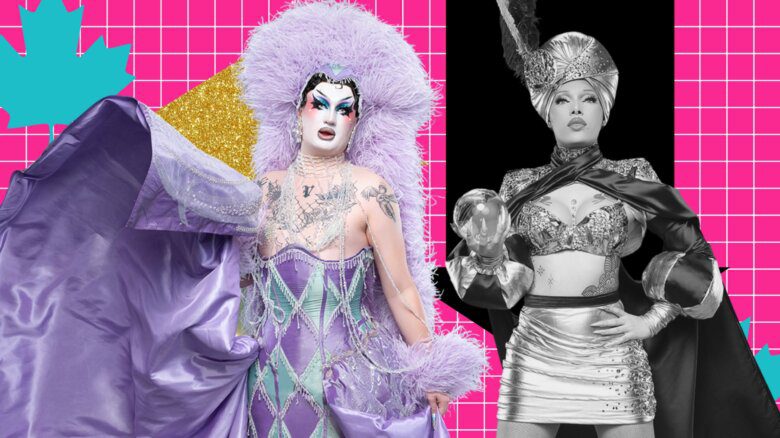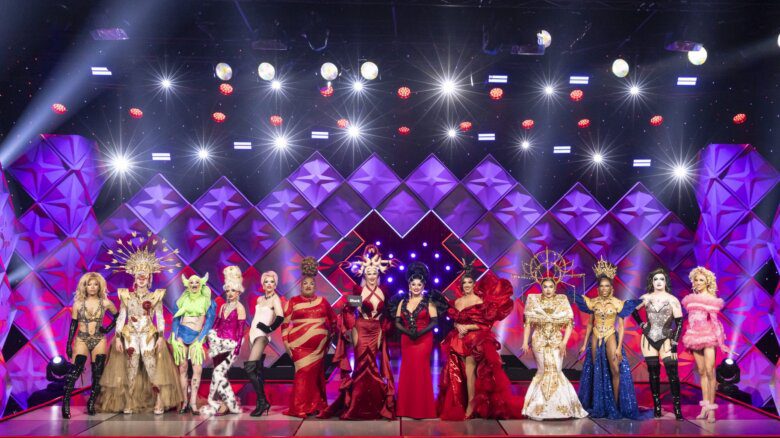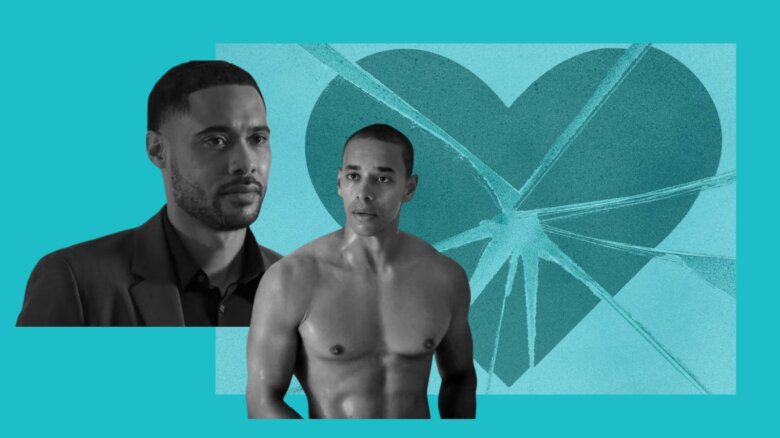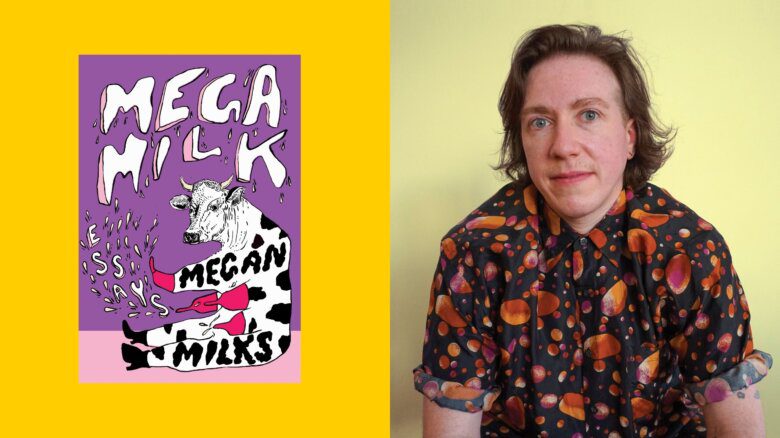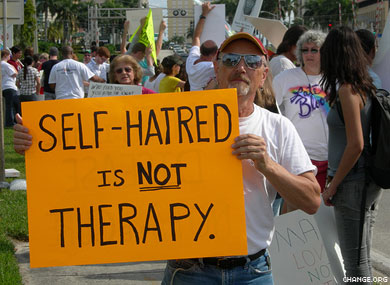
Gay advocate and lesbian filmmaker Kristina Lapinski went undercover to Bachmann & Associates, the Minnesota clinic run by former GOP candidate Michele Bachmann’s husband, Marcus Bachmann. Lapinski captured some of what goes on at the clinic (where, despite the Bachmanns’ denial, counsellors have been accused of trying to “pray the gay away”) with a camera hidden in her pen. The footage will appear in her upcoming film Gay USA: The Movie. Lapinski has also blogged about her experience, which was as creepy, redundant and pathetic as you’d expect:
“I went into the session using a different last name. I didn’t want to give my real last name just in case they ‘googled’ me and found out I was a gay rights activist. I described my future husband as my best friend, my buddy. I told her about my desire to start a family and please society and my religious community.
Advertisement
I told her I had been with a woman, and found that to be true love. I made my uncertainty clear, that I had two options either to go through with the marriage or to refrain because I thought I was a lesbian.
She asked me if I had slept with my fiancé and I told her that I had not yet and that I was not attracted to him. She said “how can you know how it will be until you try?”
She asked if I believed in God, and I answered, “yes.” She pulled out a bible, handed it to me and asked me to read a passage out loud. It was about love, and then she asked me to analyze it with her. We talked about love and commitment, and even though I have never been attracted to my fiancé, the commitment, she noted, was a form of love.
I communicated that we played sports together and were buddies, and that we had a lot in common. She then jokingly told me that it is better than what most straight married people had together.
She told me to follow God’s road. “The bible says one man one woman . . . two great halves come together . . .” and then spoke to some extent about a woman’s duty to keep the man company . . . I found that oddly sexist.
She then went on to convince me about what was right and never ever explored the option that I could possibly in fact be a lesbian. She told me the commitment part was important and the love part would grow over time.
She asked me if I could “pray for a miracle to happen and wake up in the morning and have it be true, what would I wish for?”
I said “money, success, a happy loving environment with friends and family.”
She was clearly implying that my miracle would be the getting rid of my “desire” which she referred to as ‘same sex attraction’- (notably what many on her side of the issue call SSA, as if it is a disorder).
I told her I’d want my miracle to just be happiness and did not submit to the suggestion of my miracle being a cure for my “desire.” I refused to give in to that notion.
That led to her question – She asked “What is the worst that can happen if you do get married?”
I answered by saying, “well I would get a divorce, and it would be my fault because I was never really attracted to men to begin with.”
I expressed I wanted a family, but thought I might be too young, to which she replied, “a lot of people start much younger than you!” She really pushed for the pursuing of a relationship with my fiancé and starting a family.
Given this was not a real situation it made me wonder what if I had in fact been a real patient and all of this was actually my situation, surely the therapist ought to have told me not to get married if I had these kinds of doubts and thought I was gay?
She talked a lot about submitting to God, giving my life path over to him and letting him direct the way. She told me if I wanted to be happy I could “give my problems to the Lord and he could take them away.”Advertisement
We ended the session with a prayer and Sheila J Marker asked the lord to take away my “desire” and allow me to pursue a relationship with my fiancé.
What made this difficult for me to do was that I found her to be really nice, she was a beautiful woman and I really believed she meant no harm and simply did not know better, but then wondered if this type of practice made sense in the context of her university degree and training.
I found it interesting that I gave Ms Marker my options – the option between being with women or being with a man. I had clearly expressed I did not have a sexual attraction to men. It was astounding to me that she pressed her personal political and religious opinion on me about which path to pursue, without even exploring my feelings of being a lesbian, which was given no consideration at all on that day of prayer, even though she invited me back to further the discussion.
I feel the need to expose this kind of practice because I really believe that if I was that character in real life and uncomfortable with my sexuality, this so-called counseling could have been very harmful to me.”
 Why you can trust Xtra
Why you can trust Xtra